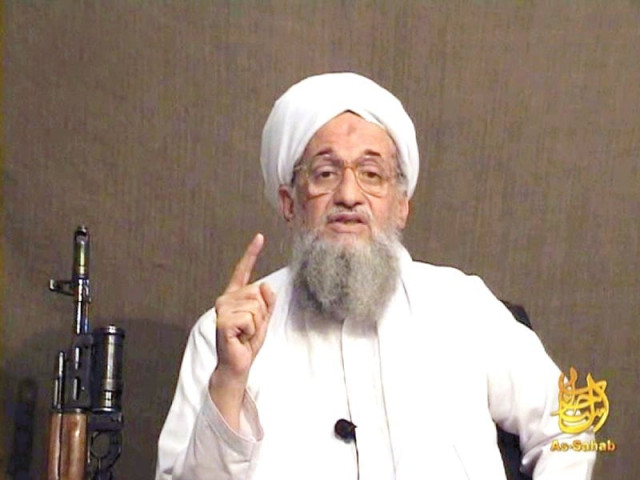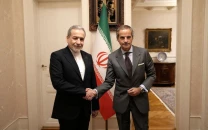Al Qaeda down, but not out in Pakistan
Its finances have dried up, and those who once idolised the group wonder whether it can survive.

Already a legend in the shadowy world of jihad for breaking out of a high security US prison in neighbouring Afghanistan in 2005, he seemed to promise endless funds, training and inspiration for men who dreamed of unleashing carnage in New York or London.
By the time he was killed in a US drone strike last week, he was the latest victim of a series of the unmanned aerial attacks that has crushed al Qaeda's network along Pakistan's border with Afghanistan, Pakistani intelligence officials and commanders of militant groups said.
Its finances have dried up, and those who once idolised the group wonder whether it can survive.
"Imagine. They used to travel in Land Cruisers and double-cabin pickup trucks a few years ago," said a commander from the Pakistani Taliban, which is close to al Qaeda. "Now, they are riding motorcycles due to lack of resources."
The downfall of the network in the border area started with the killing of Osama bin Laden in a Pakistani town in May last year, and the sustained campaign of drone attacks has further weakened the group. Only about eight hardcore al Qaeda leaders are still believed to be based in the lawless borderlands of Afghanistan and Pakistan, compared with dozens a few years ago.
Current al Qaeda chief Ayman al-Zawahri is among those believed to be hiding in the area. Many al Qaeda loyalists have sold their weapons or sought donations to fund attempts to escape to their home countries, the Taliban commander added, speaking in a telephone interview.
But the strike that killed Libyan cleric Libi in North Waziristan, and other similar attacks on militant hideouts, have not made the region any safer. Several other armed groups infest the area, and are not noticeably weaker.
While the aerial campaign has weakened al Qaeda, its ally the Pakistani Taliban remains a highly potent force despite a series of Pakistan army offensives against its strongholds in the northwest. Seen as the biggest security threat to the US-backed government, the Taliban is blamed for many of the suicide bombings across Pakistan, and a number of high profile attacks on military and police facilities.
The Haqqani network, which is strongly allied to the Taliban in Afghanistan, also has bases in Pakistan's northwestern badlands, according to US officials. The group and Pakistani officials however deny they operate from there.
For the United States, however, the leaders of al Qaeda, the group that was behind the 9/11 attacks on New York and Washington, appear to be the prime target.
"We just took down another leader in al Qaeda the other day," US Secretary of Defense Leon Panetta told NATO forces during a visit to Kabul last week, referring to Libi, who was al Qaeda's second in command and top strategist.
"The worst job you can get these days is to be a deputy leader in al Qaeda, or for that matter, a leader," he added, to laughter.
Al-Qaeda funds dry up
Residents in the area, Pakistani intelligence officers and former militants said in interviews that the aerial offensive has put al Qaeda commanders and fighters on the defensive, restricting their movements and their ability to forge closer alliances with other militant groups.
Financing was proving troublesome, since it is traditionally done in cash and in person to avoid being tracked through the banking system.
Libi was one of the few al Qaeda leaders who kept up personal contacts with commanders from other major militant groups like the Pakistani Taliban.
He used his charisma, and credentials as a theologian, to try and keep al Qaeda's network intact in the face of growing pressure from the remotely-piloted drones.
"Libi's death is a big blow to al Qaeda. It is currently facing serious financial problems in the Pakistani tribal areas," said a Pakistani intelligence official, a view echoed by some diplomats in Islamabad.
"Sending and receiving money has become very difficult for them because most of their channels have been shut down or compromised. That is impacting their operations."
Al Qaeda commanders who once appeared at training camps to motivate fighters are rarely seen, according to Taliban commanders and Pakistani intelligence officials.
"Most of them have gone underground, hiding in bunkers and basements, avoiding contact with the outside world," an intelligence official in the tribal border areas told Reuters.
Militancy: a long term threat
One senior Pakistani security official estimates there are only about eight core al Qaeda leaders left in Pakistan. But that does not mark the end of al Qaeda's leadership in the porous border frontier area between Pakistan and Afghanistan, which President Barack Obama once called the most dangerous place in the world.
"It would be a mistake for anyone to conclude there is no one on the bench. It's a thinning bench, but there are still bad guys, with bad aspirations in al Qaeda's core group in Pakistan,' said a U.S. official in Washington.
"However, these individuals are not as capable and don't have the profile or following in the wider extremist movement that Abu Yahya or his predecessor Abu Atiyah had."
Much will depend on whether the United States can push Pakistan to go after the remaining al Qaeda leaders, especially in North Waziristan, where Washington says some of al Qaeda's most lethal allies are based.
But Pakistan is unlikely to commit itself to what could be a bloodbath, especially during a crisis in relations with the United States that has been worsening since the unilateral raid that killed bin Laden. Pakistan says its army is stretched fighting the Pakistani Taliban in other areas and it alone will decide when to fully take on groups in North Waziristan.
US officials have said the drone strikes, which inflame anti-American sentiment, will continue despite Pakistani demands they cease. That could undermine cooperation from Islamabad.
The senior Pakistani security official agreed the remaining handful of core al Qaeda leaders left in Pakistan were most probably hiding in North Waziristan.
It's a small number. But getting to them and their friends, like the notorious Haqqani network, won't be easy. Intelligence, especially, is hard to come by. A few years ago, Pakistani Taliban fighters managed to track down a large number of tribal informers for Pakistani intelligence in North Waziristan and slaughtered them.
"Many were killed and other people are too scared to cooperate with intelligence agents. It will take a long time to build up a network again," said the security official.
Even if Pakistan decides to mount a full-scale offensive there, that may only offer short-term solutions. Conditions that breed militancy are still ripe in nuclear-armed Pakistan, and they won't go away until the government implements bold reforms that strengthen the struggling economy.
More jobless young men could turn to militancy, which gives them a sense of power through the AK-47 assault rifle. Suicide bomber vests offer a path to paradise, they are told.
That message is especially alluring in unruly areas like North Waziristan, where more than 60 percent of the population is between the ages of 15-25, job opportunities are virtually non-existent, and the state has little control.
"Every day someone turns 18 in Pakistan," said the senior Pakistani security official, referring to an ever-growing pool of possible recruits for the jihad.



















COMMENTS
Comments are moderated and generally will be posted if they are on-topic and not abusive.
For more information, please see our Comments FAQ